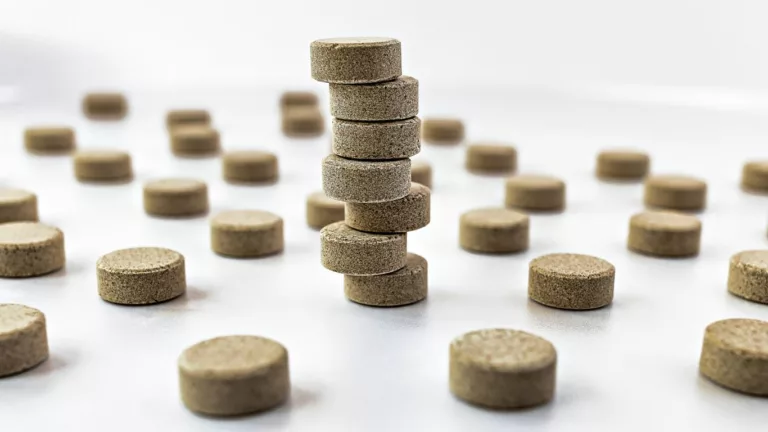Can Stress Worsen Acid Reflux? – Understanding the Connection
Ever wondered if stress can make your acid reflux worse? Turns out, it can! In this article, we dive into the science behind acid reflux and stress, and what you can do to manage both.

What is Acid Reflux?
Before we can talk about how stress impacts acid reflux, let’s quickly cover what acid reflux actually is. Acid reflux, also known as gastroesophageal reflux disease (GERD), happens when stomach acid flows back up into the esophagus. This can cause discomfort, including heartburn, regurgitation, and chest pain. Some people also experience difficulty swallowing or a sensation of food being stuck in the throat.
Can Stress Worsen Acid Reflux?
The short answer: yes, stress can make acid reflux worse. But how? When you’re stressed, your body reacts in several ways. For one, stress can trigger the production of stomach acid. The more acid your stomach produces, the higher the chance it could reflux into your esophagus. Plus, stress can lead to behaviors like overeating, eating too quickly, or choosing spicy or fatty foods—all of which can worsen acid reflux. Stress also affects the way your body digests food. When you’re under stress, the digestive system slows down, which can lead to delayed stomach emptying. This means food stays in your stomach longer than it should, increasing the likelihood of acid reflux.
The Science Behind Stress and Acid Reflux
To really understand the connection, we need to dig into some science. Stress activates the “fight or flight” response in your body, which involves the release of hormones like adrenaline and cortisol. These hormones prepare your body to react to a stressful situation, but they also affect your digestive system. For example, they can relax the lower esophageal sphincter (LES), the muscle that keeps stomach acid where it belongs—in the stomach. If the LES doesn’t work properly, acid can leak into the esophagus, causing the symptoms of acid reflux. Additionally, stress can contribute to inflammation in the body, which can exacerbate the symptoms of GERD and make the lining of the esophagus more vulnerable to damage from stomach acid.
How to Manage Stress and Prevent Acid Reflux
Now that we know how stress impacts acid reflux, let’s talk about how to manage both stress and acid reflux together. Here are some simple yet effective tips:
1. Practice Stress-Reduction Techniques
The best way to combat stress is to relax your mind and body. Try techniques like deep breathing, meditation, yoga, or even taking a walk to clear your head. These activities help reduce the production of stress hormones and lower your risk of triggering acid reflux.
2. Watch What You Eat
Stress can sometimes cause people to reach for unhealthy foods—especially those that are spicy, fatty, or greasy—which are notorious for making acid reflux worse. Try to eat smaller, more frequent meals to avoid putting too much pressure on your stomach. Also, avoid triggers like caffeine, chocolate, citrus, and carbonated drinks, which can irritate your digestive system.
3. Keep a Healthy Lifestyle
Regular exercise, a healthy diet, and plenty of sleep are key factors in managing both stress and acid reflux. Exercise helps your body manage stress better and can improve your digestion. Getting enough rest is important, too, because lack of sleep can increase stress levels and make acid reflux worse.
4. Avoid Late-Night Meals
Eating late at night can make acid reflux worse, as your body doesn’t have enough time to fully digest your food before you lie down to sleep. Try to finish eating at least 2-3 hours before bedtime to reduce the chance of reflux.
5. Consider Stress-Relief Supplements
Certain supplements, like magnesium, B vitamins, and adaptogens (like ashwagandha), may help reduce stress levels. If you’re unsure, it’s always a good idea to talk to your healthcare provider before starting any new supplement.
When to Seek Medical Help
If you’ve tried managing stress and acid reflux on your own but still experience symptoms, it might be time to seek medical help. A doctor can help determine if your symptoms are due to GERD or another condition and recommend treatment options. If you experience severe chest pain, difficulty swallowing, or if your symptoms interfere with your daily life, it’s important to seek medical advice as soon as possible. You might need prescription medication or even a specialized treatment plan.
Appendices
FAQs
Here are some frequently asked questions about stress and acid reflux:
- Can stress cause acid reflux on its own? While stress doesn’t directly cause acid reflux, it can make existing reflux symptoms worse by increasing stomach acid production and relaxing the LES.
- What are the most common triggers for acid reflux? Spicy foods, fatty foods, chocolate, citrus, coffee, and alcohol are some common triggers for acid reflux.
- Does anxiety worsen acid reflux? Yes, anxiety and stress can contribute to acid reflux symptoms. The body’s stress response can affect digestion and the function of the LES.
- Can I use over-the-counter medications for acid reflux caused by stress? Over-the-counter antacids or H2 blockers can help manage occasional acid reflux symptoms, but if the problem persists, it’s important to consult a doctor.
- Can lifestyle changes really help with acid reflux and stress? Absolutely! A healthy diet, stress-reduction techniques, and proper sleep can go a long way in managing both stress and acid reflux.
References
For more information on the connection between stress and acid reflux, check out these sources:
- American College of Gastroenterology (2024). Stress and GERD: The Link Explained. Read Article
- Smith, A., & Roberts, D. (2023). The Impact of Stress on Digestive Health. Journal of Digestive Disorders, 45(3), 67-74. Read Article
- National Institute of Diabetes and Digestive and Kidney Diseases (NIDDK). (2024). Acid Reflux and GERD. Read Article
Disclaimer:
Disclaimer: The information in this article is for educational purposes only and should not be considered medical advice. Always consult with a healthcare provider for personalized treatment and advice regarding your health concerns.













